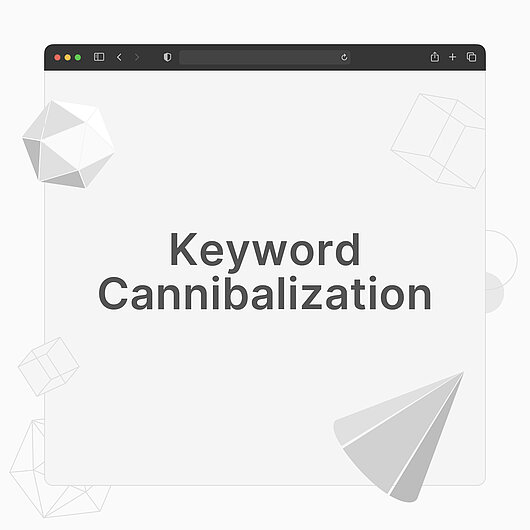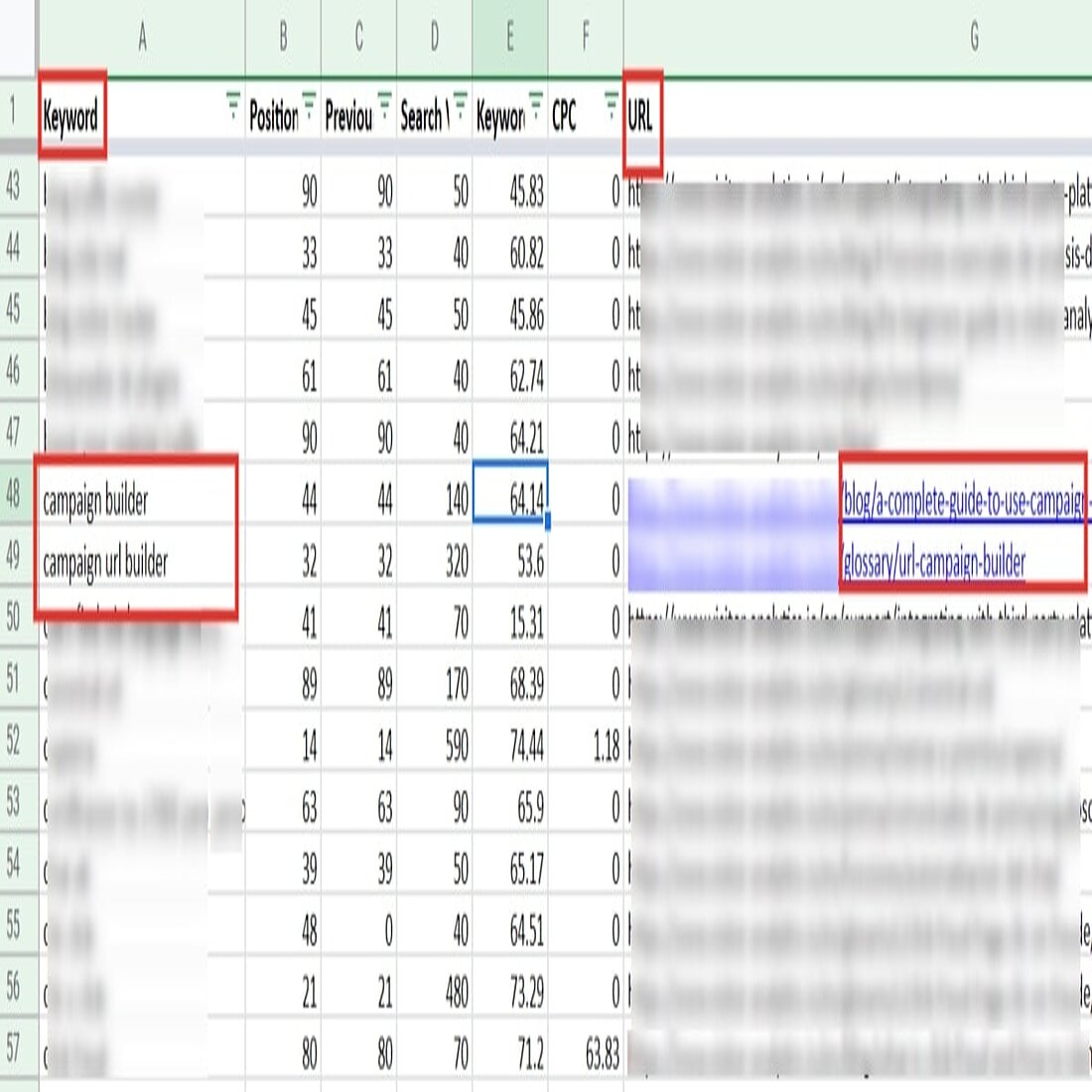- Why Us?
- Features
White Label
For SaaS Platforms & Agencies
Provide our complete analytics suite to your clients, directly within your own interface and with your/their own branding. Discover Analytics-as-a-Service and White Label Analytics. Great benefit, minimal effort.
- Pricing
- White Label
- Success Stories
- Partner
- ResourcesExpand Your Knowledge
Keyword Cannibalization
TL;DR

Keyword cannibalization represents content placed on multiple pages or articles across the same site using the same keywords or very similar ones in order to rank higher in search engines. This often ends up creating pages that compete with each other.
What is Keyword Cannibalization?
It sounds absolutely terrifying, but the concept of keyword cannibalization is rather old, and a very common problem in the SEO structures of many websites. It identifies the problem of having several pages competing for the same (or extremely similar) keywords/keyword clusters.
This often unnoticed problem impacts the SEO potential of your pages in a bad way. If more than one page has the same keyword target as another page on your website, it generates “confusion” in the search engine. This results in an unnecessary struggle to decide which page to rank for what term.
There is a fairly common misconception that the more pages you have targeting a keyword on your website, the higher you will rank for that keyword. However, it’s not like that and, simply put, when you have a dozen pages ranking for the same keyword, you’re actually competing with yourself.
What Are the Effects of Keyword Cannibalization?
1. You are going to have unwanted rankings
This happens when two pages rank for the same keyword, and the one that is less performing ranks higher on Google or other SERP than the better one.
2. You’ll decrease your own authority
The two pages competing against each other will not only cause you to give up organic traffic from your top-quality page. The lower quality page ranking higher will split your click-through-rate. You’ve become your own competitor, and the power of your links and anchor texts become diluted.
3. Your conversion number could decrease
When the cannibalizing pages are going to be converting more than your quality pages, you will be losing potential leads because they will land on the page with less relevancy and quality.
How Do You Identify Keyword Cannibalization on Your Website?
Use a tool to see your site’s organic keywords list and export it to a spreadsheet. Then, filter the results so that the keyword column is in alphabetical order. Then, you will be able to determine if any pages or URLs are targeting the same keyword or very similar keywords. If that is the case, you’ve got yourself a case of keyword cannibalization.
Another way to check whether or not your site suffers from keyword cannibalism is rather easy. You should search your site for any specific keyword you suspect might have multiple results. Then you should google site:domain.com “keyword” and, if two or more pages appear, the answer is yes, your website suffers from keyword cannibalism.
Restructure your website
How? You take your most authoritative page and turn it into a landing or pillar page that links to the similar pages that are related to your targeted keywords. This way, there will be no mistaking what keyword is the focus on every page.
You could create a spreadsheet and list every page along with its focus keyword. Each of the pages will become the authority page for its respective keyword. If the pages exist, make sure you rewrite the content so the information matches closely with the keyword.
Erase all keyword references
Search through the pages and remove any mention of the cannibal keyword. It won’t 100% solve it, as Google relies on a lot more signals to figure out proper rankings.
Create new Landing Pages
Maybe you lack a page that consolidates a certain keyword. So you should create this unique landing page to serve as your authoritative source page and then link to the other pages from there.
Merge some pages together
Merge the pages cannibalizing eachother to make a super-page. Be mindful to 301 redirect the second page to the new URL, or both, if you decide upon a new URL.
A 301 redirect sends the visitors of a certain web page that does not exist anymore to the new page. It helps you consolidate your cannibalized content by linking the less relevant pages to the most authoritative one.
However, 301s tactic is suitable only when the pages are very similar in terms of content and match those specific keyword queries.
Find new keywords
If your pages are already very diverse and full of content, the only problem with your website could be a poorly planned keyword strategy. Try finding new keywords, and make sure they accurately describe each page’s content.
Keyword Cannibalization in PPC Campaigns
Keyword cannibalization doesn’t only happen at SEO level. It can also be found in your PPC campaigns. So, sometimes, you might be your own biggest PPC competition. Different keywords in your campaign compete against each other in an internal auction, when they match with the same term.
The one with the highest ad rank will be the winning keyword. This can lead to a loss of control of the traffic brought by your campaign. An ad group, that has particular terms in ads, may lose its traffic to another group that targets the same keywords.
Internal Keyword Competition
The keyword cannibalization in PPC campaigns is also known as Internal Keyword Competition, which of course doesn’t sound as funny. It occurs when you have two or more duplicate keywords that share identical targeting in your Google Ads account, and thus compete for the same search term. These duplicate keywords that compete share the same syntax and match type. They also share the same audience settings.
When Does it Happen?
It typically occurs when the same keywords appear in multiple different campaigns, but also when identical keywords are found in two or more ad groups within one campaign. So Google Ads must choose one keyword to enter the auction. You can’t have two or more keywords enter the same auction. The keyword it will choose is the one with the greatest calculated Ad Rank.
Why Shouldn’t You Let it Happen?
Having this kind of keyword cannibalization in your PPC campaigns will result in increased PPC. You are practically now bidding against yourself. If you have two identical keywords with the same targeting, they will share a single quality score. And if the only different factor between the two is the maximum CPC bid, Google will, of course, choose to serve the one with the higher bid.
Another problem that can occur is concerning messaging variants. If you don’t take control over which keyword-landing page instances are more important to you, you can sabotage your strategy. Users won’t see the right message and future performance analysis will be very difficult to do.


